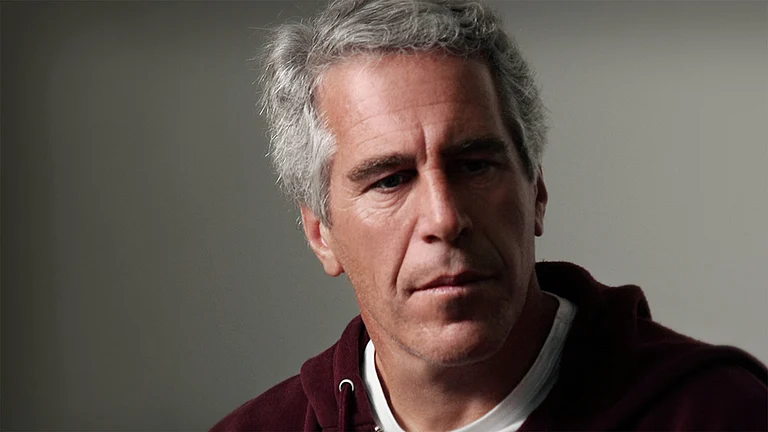Among the many theories cast anew will be the raison d’etre of Pakistan itself: in the new thinking, it came into being not because Hindus and Muslims were/are separate nations but because of social, economic, cultural deprivation of Muslims, who, to protect their interests in undivided India, carved out a separate nation. This perspective tacitly rejects the idea that people of a faith constitute a separate nation, that they must necessarily have their own separate state, that Partition was a historical inevitability. Indeed, there couldn’t have been a more radical revision of the two-nation theory.
The new curriculum also wants schoolkids to imbibe the secular kernel of Jinnah’s vision: the Pakistan state does not exclude non-Muslims and all Pakistanis, irrespective of caste, colour or creed, enjoy equal rights. "This is a reflection of the true facts of history," applauded the Daily Times in its editorial.
The radical revision of the two-nation theory, and attempts to ground students in Jinnah’s secular vision, will inevitably entail a thorough revision of textbooks. Excised, thus, from the books would be passages fanning hatred against India, which were documented by A.H. Nayyer and Ahmed Salim in their seminal publication of 2002, The Subtle Subversion—The State of Curricula and Textbooks in Pakistan. The authors point out that in Social Studies Class VI students are taught that Hindus are conniving and manipulative, and wouldn’t miss an opportunity to attack Pakistan. Hindus are projected as backward and superstitious, burning widows and wives. The Subtle Subversion concludes, "If we imagine a child with no other source of information but these textbooks, he would be astonished to know that there is a world beyond Pakistan, Muslim countries, and our eternal enemy, India. The outcome manifests itself in the form of violence and intolerance prevalent in Pakistani society."
The revised curriculum goes beyond history, India and Partition to encompass Islamic studies and the prevailing system of instruction in Ad-Dawah or Islamic schools. The attempt here too is to cull out hate speech and emphasise on the liberal values of tolerance, humanism and peaceful coexistence. "One of the main objectives is to create awareness about national integration, cohesion and patriotism," says Lt Gen (retd) Javed Ashraf Qazi, the minister of education who was earlier theISI chief. The revised curriculum, he adds, is for Class III to XII; the draft curriculum has been sent to provincial governments who have a month to send in their comments. The implementation is to begin next September and is expected to be completed in ’09.
Musharraf’s U-turn on education has been welcomed across Pakistan, particularly among the liberals who usually look askance at his authoritarian tendencies. Dr Aneela Z. Babar, honorary fellow at Monash University, Melbourne, and currently in Pakistan on a field trip, told Outlook, "Many of us in our region have great faith in the opinion that in tareekh (history) only the tareekh (dates) are correct, the rest is fabricated. Still, it’s important that there should be some acknowledgement of the events of a particular period in Pakistan’s history rather than labelling it as ‘Indian-inspired conspiracies’."
Dr Aneela feels the impact of the new curriculum will be sweeping in Ad-Dawah schools. She describes how Urdu alphabets are taught there: Alif for Allah, Bay for bandooq, Tay for tank, Jeem for jahaaz and so on. The underlying agenda is to glorify the military, even the militant. "Placed on a pedestal, the ‘militant’ is glorified as a hero by the student at the Ad-Dawah schools."
The U-turn on education didn’t happen because of a sudden awakening among the custodians of the state. After The Subtle Subversion jolted the nation’s conscience and kicked up a storm, the Future Youth Group published Ideas on Democracy, Freedom and Peace in Textbooks. It too brought to the fore instances of hate speech in textbooks. Scholars like K.K. Aziz and Rubina Saigol have persuasively mounted pressure for change. Taking cue, PPP leader Aitzaz Ahsan, in a letter to the federal education minister, demanded to know why a Class XI textbook prescribed in Sindh and Punjab didn’t have a chapter on Jesus Christ even though there was one each on Prophet Mohammed, Buddha, Krishna, Guru Nanak etc.
Apart from these radicals, the influence of the US on the government’s decision can’t be understated. Post-9/11, it has been repeatedly pointing to the rich diet of hate material schoolchildren are fed upon. US ambassador to Islamabad William B. Milam’s response to the new curriculum was swift, "Jinnah would be pleased. These changes will bring more tolerance for minorities and accuracy into textbooks which narrate the history of the movement for Pakistan."
The hawks are not pleased. Muttahida Majlis-i-Amal president Qazi Hussain Ahmad says, "These steps are aimed at suppressing the spirit of jehad and the followers of the West are trying to put the country on a secular path." Giving him company is director-general of the Institute of Strategic Studies, Dr Shirin Mazari. "Shame on us," she said. "Now we are set to rewrite our history books again. But instead of accepting the hatred that was a reality between Muslims and Hindus and the evils of the caste system, we want to deny all this and yet show the necessity of Partition!"
In a burst of polemic, Mazari asks, "If the hatred that existed between Muslims and Hindus was not a reality, what were the Partition riots all about? What was the demolition of the Babri Masjid all about? What was the massacre of Muslims in Gujarat all about? Yes, we must correct all distortions, but it is no use replacing one distortion with another. After nearly 60 years of existence as a nation, let us arrive at a rational account of our history which, I agree, must begin with the Induscivilisation. We cannot replace religious bigotry and extremism with secular bigotry and extremism."





















